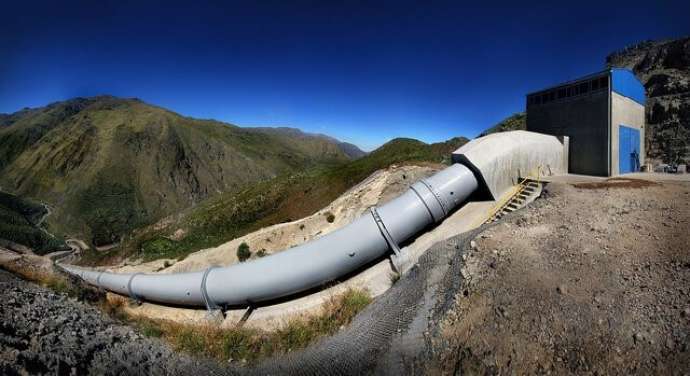September 27, 2020 - The NGOs WWF and Bankwatch are calling on the governments of Western Balkan countries to abolish incentives for small hydropower plants (sHPPs), which pose the greatest danger to Europe's last free-flowing rivers.
"Freshwater ecosystems are disappearing at an alarming rate. According to the latest State of the Planet Report, the population of freshwater species has declined by 84% since 1970. Over 60% of Europe's rivers are in poor condition, mostly due to degradation and destruction by dams, hydropower, canals, unsustainable extraction of sand and gravel, poorly planned navigation infrastructure, etc. It is not surprising, therefore, that some of the most degraded river areas are located in Europe, "WWF and Bankwatch said in a statement.
They added that despite this, on World River Day, which this year is being held on September 27, it is essential to highlight parts of the old continent where rivers still flow freely.
"Our region is home to the last free-flowing rivers in Europe, but they are under a lot of pressure today. State incentives are the main reason why around 2,700 sHPPs are planned across the Balkans. If this is not stopped, hundreds of rivers will be destroyed. With this type of construction, they could lose 5,000 km of untouched rivers," reads a statement from WWF and Bankwatch.
"The development of small hydropower plants is one of the biggest threats to rivers in the Balkans. More absurdly- these senseless projects are directly sponsored by state funds and do not benefit either the energy sector or the state initiatives - we are calling on their countries to stop the construction of sHPPs. Now is the right time for the Western Balkan countries to lift incentives that destroy nature and to protect Europe's last wild river," said Zoran Mateljak, freshwater program manager at WWF Adria.
The statement also states that in the countries of the Western Balkans, the number of hydropower plants with a capacity of up to 10 MW has quadrupled over the past ten years.
"It is clear from this that the governments of the countries in the region are prioritizing the development of small hydropower plants. Data for 2018 tell us that 70% of all incentives for renewable energy sources were spent on small hydropower plants at the regional level," said WWF and Bankwatch.
"The European Union has already abandoned the system of preferential prices for all but the smallest projects. Therefore, the existing incentive system in most Western Balkan countries is at odds with the recommendations on state aid for environmental protection and energy," explained Pippa Gallop, energy adviser for Southeast Europe at Bankwatch.
"Governments must urgently change laws and regulations to prevent further unnecessary destruction of our rivers," she added.
WWF and Bankwatch said that the disproportionate environmental and social damage caused by small hydropower plants related to the amount of electricity produced has already been recognized by the Energy Community and the European Union's Technical Expert Group on Financial Taxonomy, and is also in the EU document in the countries of the Western Balkans.
"However, the countries of the region are working very slowly on diversifying the use of renewable energy sources and stopping incentives," the statement reads.
"The analyses we conducted indicate that encouraging sHPPs makes no sense. In addition to producing immeasurable damage to nature and local communities, they also produce large financial losses for the Montenegrin people. When we have to face the recession and economic crisis that will follow, the state "should stop investing in harmful projects. Moreover, focusing on 'green' solutions and the economy stands out as one of the best ways out of this crisis, and is a guarantee of a sustainable future for the whole country," said Milija Cabarkapa from WWF Adria.
"Given that the countries of the Western Balkans are now going through the process of setting their policies and goals related to the production of electricity from renewable sources by 2030, it is time to stop incentives. Instead, they should focus on alternatives that have less impact on nature and people. They include increasing energy efficiency or investing in energy sources such as the sun or wind, for which there is great potential in the region if adequately planned and with the participation of the public," concludes Gallop.








